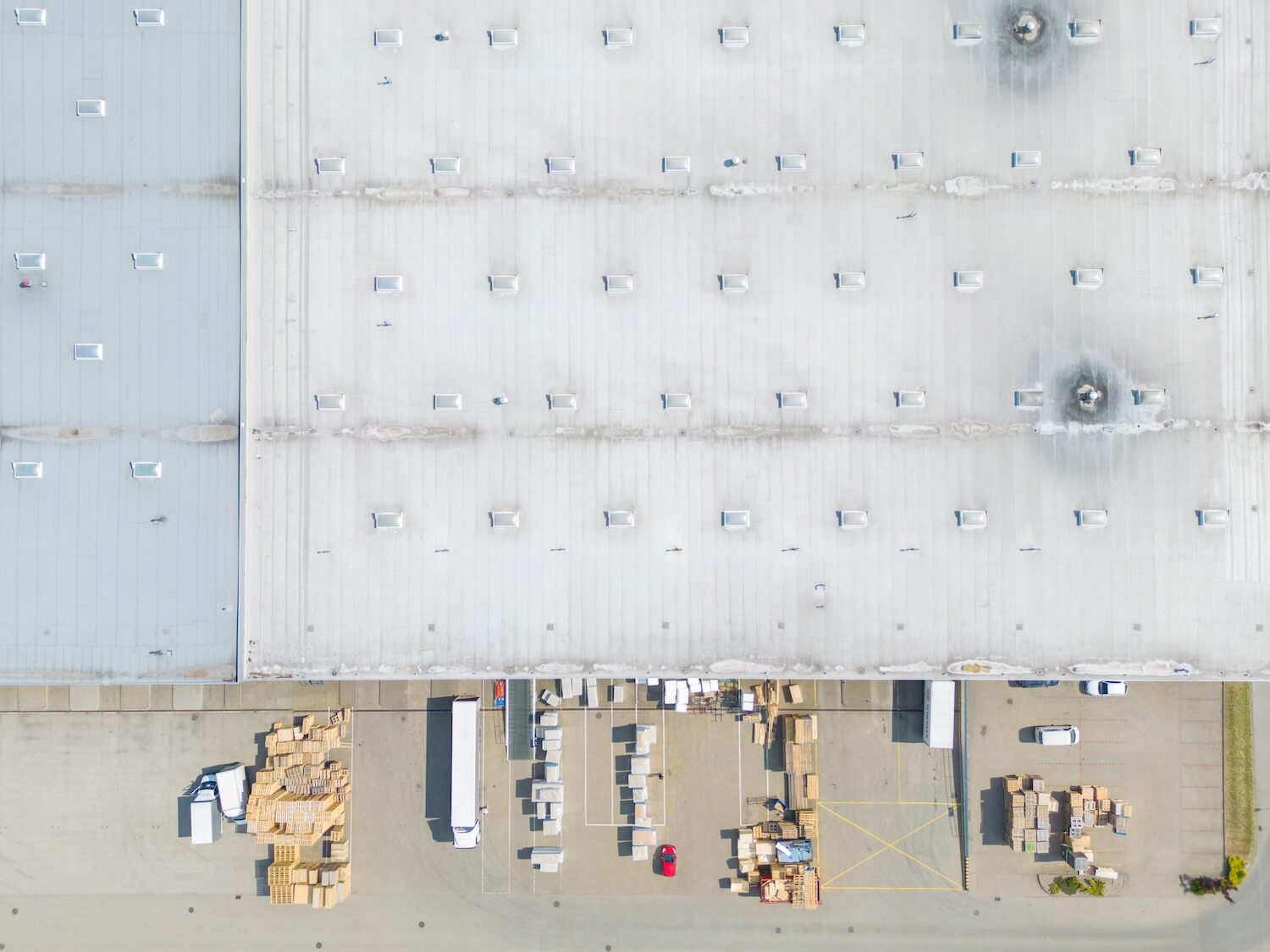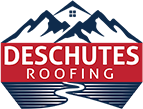Commercial roofing in Springfield faces unique challenges due to the region’s diverse climate and weather conditions. From extreme temperatures to heavy precipitation, these factors can significantly impact the integrity of roofing materials over time. In this article, we explore the most common roofing issues encountered by commercial property owners in Springfield and provide practical solutions for addressing them effectively.
Maintaining a commercial roof in Springfield is crucial for protecting the building and its occupants from weather elements and ensuring long-term structural integrity.
Springfield experiences a climate characterized by temperature variations, seasonal precipitation, and occasional severe weather events. These conditions pose specific challenges to roofing materials, making regular maintenance and timely repairs essential.

Weather-Related Roof Challenges
Springfield’s climate plays a pivotal role in determining the longevity and performance of commercial roofs. The region experiences hot summers and cold winters, with temperature differentials that can cause roofing materials to expand and contract, leading to wear and tear over time.
- Extreme Temperatures: Fluctuating temperatures in Springfield can cause roofing materials to expand during hot weather and contract during cold spells. This continual expansion and contraction may lead to cracking, splitting, and loss of flexibility in roofing membranes.
- Precipitation Issues: Springfield receives moderate annual rainfall, accompanied by occasional heavy snowfall and hailstorms. Excessive moisture can weaken roofing materials, leading to leaks, mold growth, and structural damage over time.
- Wind Damage: Strong winds associated with severe weather events in Springfield can lift roofing materials, cause shingle damage, and create entry points for water infiltration. Proper installation and regular inspections are crucial for minimizing wind-related roof damage.
- UV Radiation: Prolonged exposure to sunlight can accelerate the deterioration of roofing materials. UV radiation causes roofing membranes to become brittle, lose their elasticity, and develop cracks, which can lead to leaks and water damage.
Roofing Material Degradation
The choice of roofing material significantly impacts a commercial roof’s durability and maintenance requirements. Different materials exhibit unique vulnerabilities to Springfield’s climate conditions.
- Asphalt Shingle Problems: Asphalt shingles are susceptible to cracking, blistering, and granule loss due to prolonged exposure to UV radiation and temperature fluctuations. Regular inspections and timely repairs are essential for extending the lifespan of asphalt shingle roofs.
- Metal Roofing Challenges: Metal roofs are prone to rust and corrosion, especially in areas with high humidity or exposure to saltwater. Applying protective coatings and conducting regular maintenance checks can prevent metal roof deterioration and prolong their lifespan.
- Flat Roofing Concerns: Flat roofs are common in commercial buildings but are susceptible to ponding water issues. Poor drainage can lead to water accumulation, which accelerates roof membrane deterioration and increases the risk of leaks. Installing adequate drainage systems and conducting regular inspections are critical for flat roof maintenance.
- Tile and Slate Issues: Tile and slate roofs are durable but can suffer from cracked or chipped tiles, especially during severe weather events like hailstorms. Repairing or replacing damaged tiles promptly can prevent water infiltration and structural damage.
Structural Integrity Roof Issues
Maintaining the structural integrity of a commercial roof is essential for preventing costly repairs and ensuring occupant safety. Several factors contribute to roof structural issues in Springfield.
- Roof Leaks: Roof leaks are a common problem in commercial buildings and can result from various issues such as damaged flashing, cracked seals, or punctured membranes. Early detection through regular inspections and prompt repairs are crucial for preventing water damage to interior spaces and structural components.
- Poor Installation: Improper installation of roofing materials can compromise their performance and lifespan. Hiring experienced roofing contractors who adhere to industry standards and manufacturer guidelines is essential for ensuring proper installation practices.
- Insufficient Insulation: Inadequate roof insulation reduces energy efficiency and increases heating and cooling costs for commercial properties. It also contributes to moisture buildup within the roofing system, leading to mold growth and premature deterioration of roofing materials.
- Punctures and Penetrations: Rooftop equipment, foot traffic, and debris can cause punctures or penetrations in roofing membranes, resulting in water infiltration and structural damage. Implementing measures such as protective barriers and regular maintenance checks can minimize the risk of punctures and extend the roof’s lifespan.
Drainage and Ponding Problems
Effective drainage is critical for maintaining the structural integrity and performance of commercial roofs in Springfield. Poor drainage can lead to ponding water, which poses several risks to roof longevity and building safety.
- Importance of Proper Drainage: Proper drainage prevents water from accumulating on the roof surface and reduces the risk of structural damage and leaks. Installing and maintaining functional drainage systems, including gutters and downspouts, is essential for managing rainwater runoff effectively.
- Ponding Water Issues: Flat roofs are particularly susceptible to ponding water issues, which occur when water collects in low-lying areas of the roof. Ponding water accelerates roof membrane deterioration and increases the risk of leaks and structural damage. Implementing roof slope adjustments and ensuring regular maintenance of drainage systems can mitigate ponding water problems.
- Clearing Roof Drains: Regularly clearing roof drains and removing debris helps prevent clogs and allows rainwater to drain efficiently. Clogged drains can lead to water backup, overflow, and subsequent roof damage during heavy rainfall or snowmelt periods.
Maintenance and Inspection Best Practices
Proactive maintenance and regular inspections are key to identifying and addressing potential roofing problems before they escalate into costly repairs or replacements. Establishing a comprehensive maintenance plan tailored to Springfield’s climate conditions is essential for maximizing the lifespan of commercial roofs.
- Regular Inspections: Schedule annual or biannual roof inspections conducted by qualified roofing professionals to assess the condition of roofing materials, identify signs of damage or wear, and address maintenance needs promptly.
- Early Detection: Early detection of roofing issues allows for timely repairs and prevents minor problems from escalating into major structural issues or water damage. Promptly addressing leaks, damaged shingles, or worn-out seals can extend the lifespan of commercial roofs and minimize repair costs.
- Roof Cleaning: Remove debris, dirt, and organic growth regularly from the roof surface to prevent moisture buildup and protect roofing materials from deterioration. Cleaning gutters and downspouts also ensures proper water drainage and reduces the risk of water damage to the building’s exterior.
- Professional Maintenance Programs: Consider enrolling in a professional maintenance program offered by reputable commercial roofing contractors. These programs typically include routine inspections, preventive maintenance tasks, and priority service for emergency repairs, ensuring comprehensive care and prolonged roof lifespan.
Repair Work and Restoration Solutions
When roofing issues arise, prompt repair and restoration are essential for preserving the structural integrity and performance of commercial roofs in Springfield. Understanding the available repair options and selecting the appropriate solution based on the extent of damage is crucial for achieving long-term roof durability.
- Roof Leak Repair: Identify the source of roof leaks through thorough inspections and implement targeted repair strategies, such as patching damaged areas, replacing worn-out seals, or reapplying waterproof coatings. Addressing roof leaks promptly prevents water damage to interior spaces and minimizes disruption to business operations.
- Emergency Repairs: In cases of severe weather damage or unexpected roof issues, seek emergency repair services from qualified roofing contractors. Emergency repairs prevent further structural damage, protect building occupants, and ensure the safety and security of commercial properties.
- Roof Coatings: Apply reflective roof coatings to enhance the durability and energy efficiency of commercial roofs. Roof coatings provide a protective barrier against UV radiation, reduce rooftop temperature fluctuations, and extend the lifespan of roofing materials. Consider consulting with roofing professionals to determine the most suitable coating options for your building’s specific needs.
- Partial vs. Full Roof Replacement: Assess the condition of existing roofing materials and evaluate the cost-effectiveness of partial versus full roof replacement. Partial replacement involves replacing damaged sections of the roof, while full replacement entails installing new roofing materials across the entire roof surface. Consult with roofing experts to make informed decisions based on roof conditions, budget constraints, and long-term maintenance goals.
Hiring Professional Roofing Contractors
Choosing the right roofing contractor is crucial for ensuring quality workmanship, adherence to safety standards, and long-term reliability of commercial roof installations and repairs. Consider the following factors when selecting a roofing contractor in Springfield:
- Choosing the Right Contractor: Research local roofing companies and verify their credentials, licenses, and insurance coverage. Select contractors with a proven track record of delivering quality roofing services and positive customer testimonials.
- Credentials and Experience: Hire experienced roofing professionals who specialize in commercial roofing systems and have extensive knowledge of Springfield’s climate challenges. Ensure that the contractor is certified by roofing manufacturers to install and repair specific roofing materials, guaranteeing compliance with industry standards and warranty requirements.
- Insurance and Warranties: Verify that the roofing contractor carries adequate liability insurance and workers’ compensation coverage. Insurance protects against potential liabilities arising from property damage or injuries during roof installations or repairs. Additionally, inquire about warranty options for roofing materials and workmanship to safeguard your investment and ensure the long-term performance of the roof system.
Commercial Roofing Solutions Conclusion
Maintaining the structural integrity and performance of commercial roofs in Springfield requires proactive maintenance, timely repairs, and informed decision-making. By understanding the common roofing problems associated with Springfield’s climate and implementing effective solutions, property owners and facility managers can extend the lifespan of roofing systems, minimize repair costs, and ensure occupant safety.
Regular inspections, proper drainage management, and prompt repair of roofing issues are essential practices for preserving the integrity of commercial roofs and protecting valuable investments. By partnering with experienced roofing contractors and investing in professional maintenance programs, property owners can mitigate risks associated with weather-related damage, enhance energy efficiency, and maintain a secure and functional building envelope.
In conclusion, proactive roof maintenance and adherence to industry best practices are essential for overcoming common roofing challenges in Springfield and optimizing the long-term performance of commercial roofing systems. By prioritizing roof care and leveraging innovative solutions, property owners can safeguard their investments and ensure the durability and reliability of their commercial properties for years to come.










